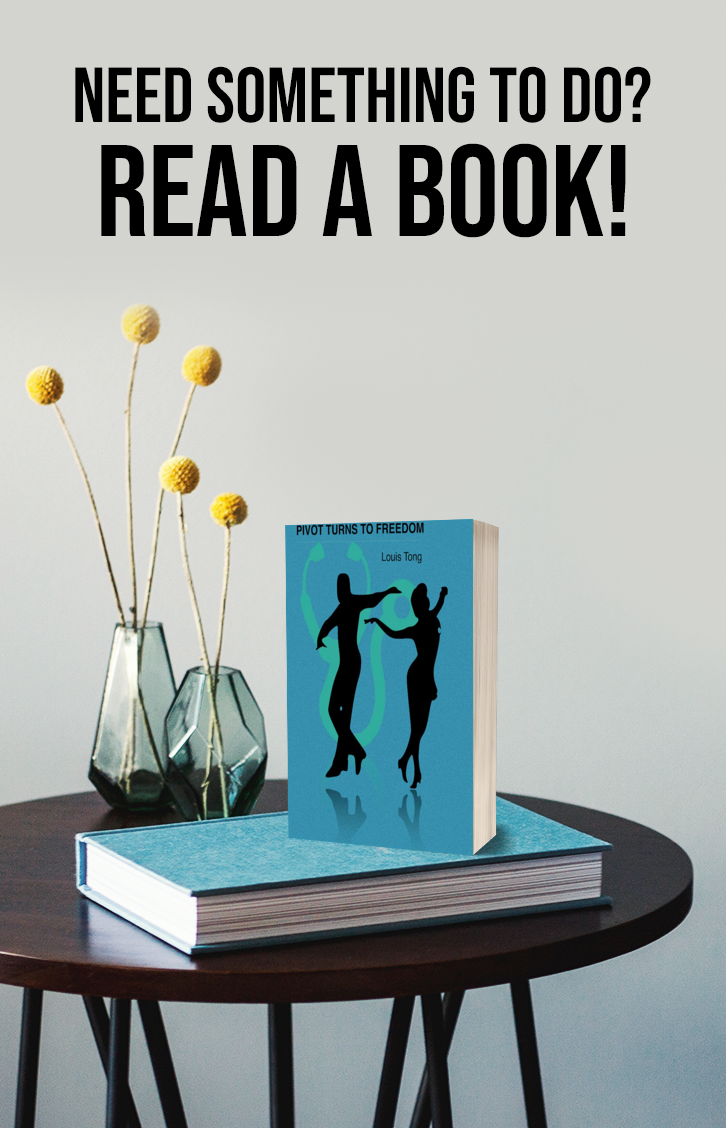Where did the idea for your book come from? Pivot Turns to Freedom

Conflict
What makes me think that my story is worth reading? First, I want to write a coming-of-age story that appeals to everyone, that has a conflict that is relevant and familiar to readers.
If you remember that scene in "Dead Poet's Society", where the character played by Robin Williams said, "Carpe Diem" to a group of elite prep school students? The substitute teacher, played by Williams, could choose to be polite and do what every teacher does: give the lesson and say goodbye, or he could try to inspire the students and risk failure.
Choice
There comes a certain time in a person's life that he needs to make a choice. And faced with the kind of choice that the substitute teacher has, most people in real life will stick to the former option. Why? It is safer and there is less at stake. Why, if every other teacher is surviving this way, isn't that a safer, time-proven and well-trodden path? The truth is, all of us feel in ourselves that it takes a whole lot more commitment and courage to do the right thing. If you try to engage and inspire students, you could be laughed at. If you try to ask a group to students to look at old photographs of students that have died, you risk yawns and people walking away. But if you do it right, you create a spark of wonder and awe, and maybe an interest in the Arts, or poetry, or a strong emotional connection with the students.
The protagonist in my book is faced with such a choice. He could continue his medical training, the way his father expects him to, could take exams, perform his hospital duties and on calls...basically do really well and become an ophthalmologist. Or he could prove to himself that he can dance, that he could be good in a whole new world that is not been dictated to him all his life.
Consequence
In real life and in fiction, choices have consequences. We know that if the main characters sticks to the safe and standard choice, there would be no story. Yet, if the character takes the risk and plunge into the unknown, the reader or audience is still keen to follow the story. Why?
This is in part escapism. We all want to know what happens when we take the path less travelled. What happens if we take that one year internship, if we train for the inter-school volleyball championship, if we take that gap year to travel, if we take that writing retreat, etc. Of course, the stakes are different in each of these ventures in real life, but there is always an opportunity cost to these paths. We've never been able to travel down every one of these routes or dreams in real life. Maybe the lucky ones among you have one such venture that had consumed you at some stage of your life. Many others would love to dream about the "what-if?" My story is written to address this unmet need. Here, I've created a situation where the main character in my story is drawn into his quest so deeply that he will lose more than his dignity and self-esteem if he stops. He can no longer return to becoming an ophthalmologist if he stops his dance quest.
We want to know if the character is going to be rewarded for his effort, or whether he will ultimately suffer for it, as in a cautionary tale. As both outcomes are compelling and viable as the controlling idea in these stories, I'm pretty sure that the audience will be hooked.